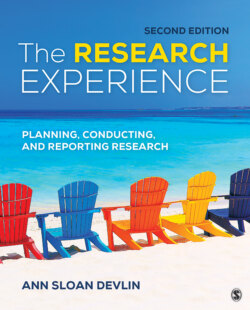Читать книгу The Research Experience - Ann Sloan Devlin - Страница 13
На сайте Литреса книга снята с продажи.
Heuristics and the Work of Kahneman and Tversky
ОглавлениеThis chapter has presented some advantages and disadvantages to the formation of schemas. Let’s talk about some other cognitive characteristics of humans and how they interact with the research process. In particular, the focus will be on what are known as cognitive heuristics or mental shortcuts and how they both shape research questions and the answers participants provide.
The researchers Daniel Kahneman and Amos Tversky (see, for example, Kahneman & Tversky, 1972, 1973, 1979; Tversky & Kahneman, 1971, 1973, 1974) studied these predictive tendencies (heuristics) or shortcuts in thinking. Kahneman received the Nobel Prize in Economics (psychologists like to claim him as one of their own) for the work he and Tversky did on these cognitive biases. (Nobel prizes are awarded only to living recipients, and Tversky had died by the time the work was honored.)
There is evolutionary value in being an animal that operates on incomplete information and the ability to use schemas for prediction. The work of Kahneman and Tversky focuses on these heuristics or shortcuts and illustrates how these shortcuts may lead humans to incorrect decisions. Before you become discouraged about human capabilities, it’s useful to remember that the work of Kahneman and Tversky applies to particular kinds of decision-making problems, not to all problems. A good deal of their work focuses on the idea of representativeness (e.g., Kahneman & Tversky, 1972) and availability (e.g., Tversky & Kahneman, 1973), both of which have applications to the research process. Here the idea of representativeness is its frequency of occurrence in a population. It can also mean the extent to which an array of events or objects or people reflects the characteristics of its parent population (discussed in terms of sampling). Availability involves using examples that come easily to mind (e.g., because you just read an article on that topic).
Availability: One of the heuristics talked about by Kahneman and Tversky (1972) in which humans use examples that easily come to mind.
